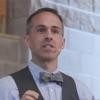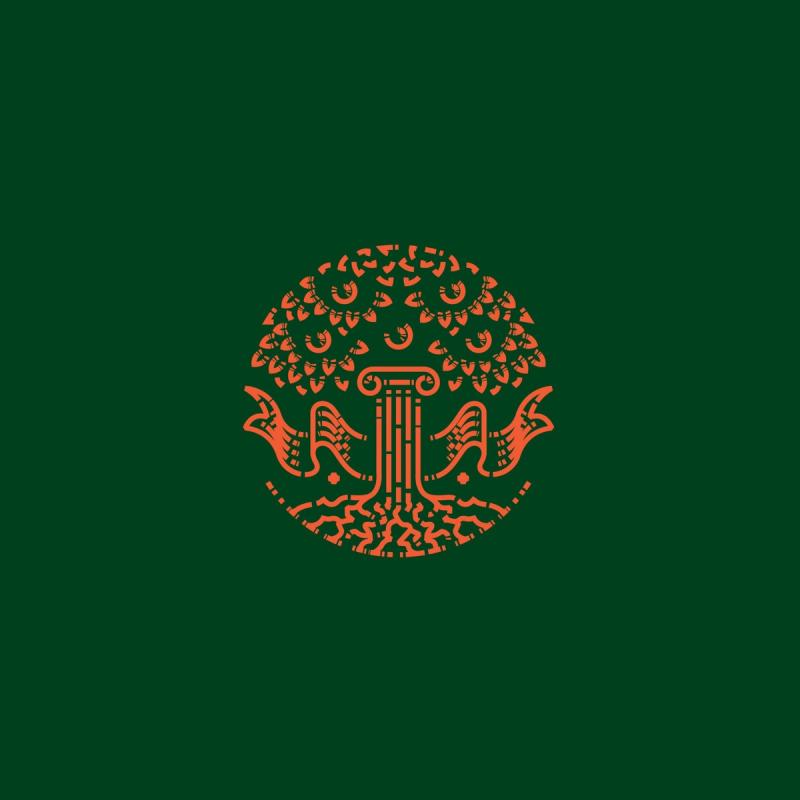In 1533, Philip Melanchthon gave a speech entitled “On the Miseries of Teachers.” Melanchthon, a Reformer well-versed in educational philosophy and honored by his contemporaries with the title of “Praeceptor Germaniae” (the Teacher of Germany), bemoaned the attitude of students: “they insult us, they wrinkle their noses, they make faces behind our backs when we admonish them.” And even the attitude of parents: “if their child has done something right, the teacher does not reap any praise. If [their child] made a mistake, it is blamed on the teacher.” Melanchthon continued his lament on the seeming futility of teaching:
for how much greater is the task for a teacher than for Sisyphus? His task of rolling a rock is a single one, and he is free from anxiety. See how a teacher’s task, to my discomfort, is many-sided. Never, unless compelled by a teacher, does a boy take a book into his hands. When he receives it, his eyes and mind wander off. A teacher explains something, presently sleep creeps up on the spoilt boy, and carefree he sleeps on one of his ears, while the teacher shatters himself by teaching.[1]
We’ve all shattered ourselves a few times, haven’t we? Whether in the home, a Sunday School room, lecture hall, or classroom, the challenge of teaching stretches across time, place, and culture. Sitting around the teacher’s lounge with Melanchthon and other Reformers, we’d vent about similar things: unruly students, apathy, and the riddle of human formation. But I think we’d do more than commiserate. We might encounter some crucial insights into education stemming from their clear understanding of human nature and their God-entranced vision of all things—insights that are especially worth exploration today.
Thinking Rightly on Human Nature
Whether students are in togas or tank tops, what we think about human nature has massive impacts on the educative task. The Reformers in both Geneva and Wittenberg understood the deep and distorting effects of the fall on human nature, which informed their approach to education. And it is perhaps here that the starkest differences with modern educational theories emerge.
In general, the heroes of modern pedagogy see humans as inherently good, but corrupted by the structures of society (Rousseau), which means education should be structured to allow the goodness of students to shine through (Montessori), where self-expression and actualization are achieved through socialization and collaboration so that democratic society can evolve and progress (Dewey). I readily admit this is an oversimplification, but one that rings true in colleges of education across the country and from my own experience in public education and in completing a Master’s degree in education. Rousseau, Dewey, Montessori, and other theorists with similar views of human nature and truth figure very prominently. These are the thinkers who, as Thomas Korcok explains in his recent book Serpents in the Classroom, “hold sway in today’s colleges of education” and are some of the “most commonly studied educationalists” (7). But their views aren’t neutral. “While the educational community portrays these thinkers as atheological,” Korcok reminds us, “there is, in reality, no such thing. Everyone has a theology, even if it is a denial of the existence of the divine. While the educational community may choose to ignore the theological views that shaped their pedagogy, the Christian cannot. Without sound Christian doctrine, one is not without theology, but simply at the mercy of theologies invented by limited…human beings” (8).
Insofar as modern educational philosophies assume too much of human nature and too little of the brokenness of the world, education’s primary goal becomes fostering the outward expression of the inner self, instead of human formation into, and alignment with, the truth. As David Hicks explains in Norms and Nobility, the aim of education should be “to form an adult, not develop a child.” But the child-centered learning so prevalent today “is a high-sounding euphemism for [a] refusal to admit a connection between what makes a person virtuous and what constitutes an educated person. Consequently, [a] child centered education produces the exact opposite of an educated person: a self-centered adult (38–39). When educational philosophies aren’t based in truth, the foundation eventually crumbles. And this is where the careful theological thinking of the Reformers on education can be of help today.
Rightly Ordered Knowledge of God and Self
The oft-cited opening lines of Calvin’s 1536 Institutes have implications regarding education’s ultimate end: “Our wisdom, in so far as it ought to be deemed true and solid Wisdom, consists almost entirely of two parts: the knowledge of God and of ourselves. But as these are connected together by many ties, it is not easy to determine which of the two precedes and gives birth to the other.” Calvin puts his finger on something important here, namely that there is a reciprocity—an iterative momentum—between accurate knowledge of self and knowledge of God. When we accurately see God, we see our sinful state more clearly; when we accurately see ourselves, we see God’s character more clearly. Such knowledge does not come from speculation or the inner self, nor from empirical or rational findings; it comes from divine revelation in the Scriptures. Calvin explains, “Scripture…shows us the true God clearly. God therefore bestows a gift of singular value, when, for the instruction of the Church, he employs not dumb teachers merely, but opens his own sacred mouth; when he not only proclaims that some God must be worshipped, but at the same time declares that He is the God to whom worship is due.” It is the Word that reveals God’s true nature and humanity’s true state.[2]
In his 1520 Letter to the Christian Nobility, Martin Luther offered similar sentiments regarding the Word’s centrality in education and the development of knowledge: “But where the Holy Scriptures do not rule, there I advise no one to send his son. Everyone not unceasingly busy with the Word of God must become corrupt; that is why the people who are in the universities and who are trained there are the kind of people they are…. I greatly fear that the universities are wide gates of hell, if they do not diligently teach the Holy Scriptures and impress them on the youth.”
In both Wittenberg and Geneva, educational reforms were rooted in such theological reflection. Melanchthon, Richard M. Gamble explains in The Great Tradition, was an astute scholar trained in the classics and ancient languages who became convinced of “Luther’s views on Scripture, salvation and the church” after joining the Wittenberg faculty in 1518. Melanchthon worked closely with Luther and “lectured on Homer, Paul’s epistles, and the Psalms” and “reformed Wittenberg’s arts curriculum to emphasize rhetoric and philosophy” (419–420). Calvin too, had an impressive humanist resumé, and put it to good work in the cause of the gospel and in educational reforms, including “the academy in Geneva, founded by [him] about the year 1558.” Worthy of note too, is the long friendship and correspondence shared between Calvin and Melanchthon (442). The classical humanist tradition was still valued, but it was modified and supplemented with more intentional and direct interaction with the text of Scripture, which grounded education in a true knowledge of God and self, from which a rightly ordered education can more cleanly flow.[3]
The Imitative Nature of Education
Another aspect of education that the Reformers understood well is its imitative nature. This also needs recovering in an era where self-expression figures so prominently in education and society. In this regard, Thomas Korcok offers a helpful summary of the content of school orders written during the Reformation.
In the sixteenth and seventeenth centuries, hundreds of school orders were written for schools in Evangelical territories. These orders generally had no prescribed curricula, testing standards, model lesson plans, or desired learning outcomes.…What received the most attention in these orders was the confession and character of the teacher. They emphasized the importance of teachers being virtuous, leading wholesome lives, having the right confession of faith, and holding to the true doctrine. Teachers were to be well-read, have a love of learning, and love their students. The formulators of the school orders understood that, in order to have wise and eloquent students, they needed wise and eloquent teachers (109).
Here we see echoes of that ancient model of teaching where students placed themselves under the authority of a master-teacher. In such a setting, everyone is all-in, aligned towards a common end with no pretense of neutrality as students come together in discussion around topics and texts under the master’s wise tutelage. Here, the power of imitation is unleashed towards its proper end: students internalizing their master’s best dispositions and habits in their development as virtuous human beings, as the teacher models and defends the true, the good, and the beautiful and inspires students to join the chase.
Another aspect of imitation and formation that the Reformers understood is that education is not just a matter of the head, but also of the heart. Korcok captures this succinctly in his book Lutheran Education: From Wittenberg to the Future. He writes, “in the 16th century, Lutheran pedagogy was built upon the liberal arts—with special attention to the lower arts of the trivium—and to catechetical training that used the Small Catechism as the basis for developing a devotional life” (160). Habits of piety and spiritual formation were central to a properly ordered education. “Luther intended the texts of the catechism to be used to develop a proper devotional life and a sense of Evangelical piety. Thus Luther talked about ‘praying’ the catechism, with the belief that, as one meditated upon the words, God would work through the Word to teach the catechumen divine truth. In the schools, the catechism was in Matins and Vespers. This practice was intended to nurture the Christian’s life of piety” (212).
Beyond the Teacher’s Lounge
This introduction to Reformation-era education is instructive for our day and offers many areas for further exploration: the types of schools they formed, the emphasis on parents and churches in educating children, the classical curriculum they leveraged and modified, and much more. Yet through it all, the teacher’s calling remains the same. Precious human beings are in our hands, given to us, nay, loaned to us, for the sobering and sacred task of formation, molding, and guiding them into what is true, good, and beautiful. May the Lord grant it, even when the task seems more futile than that of Sisyphus.
Joshua Pauling taught high school history for thirteen years and is now a classical educator and furniture-maker. He is head elder at All Saints Lutheran Church (LCMS) in Charlotte, North Carolina and studied at Messiah College, Reformed Theological Seminary, and Winthrop University. In addition to Modern Reformation, Josh has written for Areo, FORMA, Front Porch Republic, Mere Orthodoxy, Public Discourse, Quillette, Salvo, The Imaginative Conservative, Touchstone, and is a frequent guest on Issues, Etc. Radio Show/Podcast.
[1] As quoted in Thomas Korcok’s Lutheran Education: From Wittenberg to the Future, 1.
[2] This is not to dismiss any natural knowledge of God through the revelation of creation through which God’s “invisible attributes, namely his eternal power and divine nature, have been clearly perceived, ever since the creation of the world, in the things that have been made. So that they are without excuse” (Rom 1:20). Rather, it is to acknowledge the limits of natural revelation, and how we exchanged “the truth about God for a lie and worshiped and served the creature rather than the Creator” (Rom 1:25). Calvin’s words here are apt: “the heart is a perpetual idol factory.”
[3] On this point, it is interesting to note that Luther’s aforementioned 1520 Letter to the Christian Nobility includes a section explaining which of Aristotle’s works he recommended using and which he recommended discarding. For more on Luther’s use of philosophy, see Eric G. Phillips, “Luther’s Heidelberg Disputation Revisited in Light of the Philosophical Proofs,” Concordia Theological Quarterly, Volume 83:3–4 (July/October 2018): 235–245.



